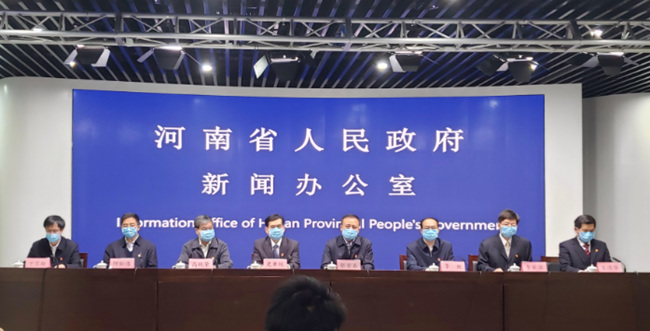The Development History of Digital China: From "Following" to "Leading"
From the "follower" of the development of the world Internet to the "leader" of the wave. In the 20th annual meeting of Alibaba, the world Internet giant company with a market value exceeding 400 billion dollars summed up its 20-year development.
Coincidentally, if the perspective is enlarged, this expression about role change has also been mentioned by many Internet entrepreneurs in China. From "follower" to "leader", it implies the development of digital China.
The world’s largest e-commerce market, the most convenient mobile payment country, and the potential largest 5G commercial market in the future … … The growth history of every enterprise constitutes the development history of digital China, and it is also a contemporary history in which the digital economy has changed people’s lives.
Yesterday of Digital China: A Glimpse of the Development of Internet in the Past 20 Years
In 1999, 35-year-old Ma Yun returned to Hangzhou from Beijing with his team and started his third venture in a residential building in the West Lakeside Garden Community. "From scratch, from scratch, build a company that we will not regret in this life." Ma Yun made up his mind and founded Alibaba.
In the same year, Ma Huateng led the team and launched Instant Messaging Service (OICQ), which is known as QQ today.
Li Yanhong, who lives in Silicon Valley in the United States, saw the great development potential of China’s Internet and Chinese search engine services, resolutely quit his high-paying job in Silicon Valley and returned to China to organize Baidu … …
No one would have imagined that 20 years later, the three companies established by these three people have the size and influence they have today. The three companies not only bring great convenience to China people’s lives with the help of Internet technology, but also become a banner of China’s Internet on the international stage — — BAT。 People slide the screen, wait for the courier to arrive at home, pick up the mobile phone and communicate face to face across the limitations of time and space. Even with the rapid development of AI, intelligent driving is gradually approaching reality from fantasy … …
The hardships at the beginning of starting a business are self-evident. In 2000, after the bursting of the internet bubble, many internet start-ups experienced a period of "kneeling for the winter", and the 18 arhats of Alibaba were "too poor to even afford a car". At that time, Ma Yun was still thinking about how to build Alibaba into a century-old enterprise. He set his sights on the world. "All our competitors are not in China, but in Silicon Valley in the United States." When these advanced concepts sounded in the empty blank room at that time, there was a sense of disobedience. Now it seems that it is the beginning of sowing the seeds of dreams.
Alibaba’s early leading products were China suppliers. In 2003, Alibaba made a major strategic choice: set up Taobao to enter the C-end market. That is, from then on, people in China began to learn to use online banking and U shield to buy goods online; Online reply consultation, package, and fill in the face sheet … … Many entrepreneurs have also moved their business online. In 2004, in order to solve the trust problem in Taobao transactions, Alibaba created Alipay, and a complete e-commerce service system began to take shape, which also made online shopping a lifestyle for thousands of households.
In the next few years, the development of the Internet has been turbulent and "wars" have continued — — Taobao, Baidu and QQ competed with eBay, Google and MSN respectively. In the end, Ali, Baidu and Tencent gained their own gains and became big players in the fields of e-commerce, search and social interaction. The pattern was initially laid, and they began to change from "followers" to "leaders".
Around 2010, on the eve of the outbreak of the mobile Internet, people began to be busy with the mobile terminal. Taobao began to be called "hand scouring", and online shopping was no longer limited to "buy buy buying" in front of the computer, but became "buy buy buying" by picking up the mobile phone anytime and anywhere. Even in the financial report released by Alibaba Group every quarter, it has been paying attention to one data — — "Mobile monthly active users of China retail platform"; After Tencent’s WeChat appeared in 2011, people’s instant messaging is no longer limited to QQ… …
Since then, the limelight on the PC side has gradually been replaced by the mobile side. Based on location and smart phones, people can touch almost everything when they slide their thumbs.
In 2014, Alibaba was listed on the New York Stock Exchange, becoming the largest IPO in the history of US stocks. In 2016, Ma Yun shouted "five innovations" at Yunqi Conference: new retail, new finance, new energy, new technology and new manufacturing. This has also become a competition field in the Internet rivers and lakes in recent years. They either make the Internet rivers and lakes lively through investment, strategic layout or direct confrontation.
In recent years, a new generation of entrepreneurs, represented by Mei Tuan Wang Xing, Didi Chuxing Cheng Wei and Pinduoduo Huang Zheng, have also emerged in more commercial fields. Earlier, on the anniversary of the 20th anniversary of Alibaba, Ma Yun "crossed the baton" to Zhang Yong, the current CEO of Alibaba, which not only marked the benign inheritance of Ali, but also revealed the metabolism of the Internet in China.
In the past 20 years, people are surprised to find that China has not only gained e-commerce platforms, mobile social companies and search engine enterprises, but also more and more digital economies including e-commerce, finance, logistics, cloud computing and entertainment. They serve hundreds of millions of users, consumers, tens of millions of small and medium-sized enterprises and more and more government departments and social organizations, profoundly affecting and changing the economy, society and people’s lives.
Yang Yiqing, executive director of Zheshang Research Association, said that the continuous emergence of enterprises in the Internet field in China in the past 20 years benefited from always resonating with China’s economy on the same frequency.
Today’s Digital China: Release of Kinetic Energy and Broadening of Fields
Brush face payment, scan code to take a bus, remote house viewing, live broadcast with goods … … In the past 20 years, with the vigorous development of e-commerce and other fields, we can find the imprint of digital China on contemporary people in all aspects of our lives.
Nowadays, the digital tentacles are extending from the fields of e-commerce platform and sharing economy to the dimensions of industrial development and urban governance.
Liu Song, vice president of Alibaba Group, believes that the digital kinetic energy is now shifting from the consumption side to the supply side, and today’s digital economy will change production, service and urban governance. "The information development accumulated in China in recent years has laid a solid foundation for the current industrial and digital integration development".
In Zhejiang, Zhongce Rubber Group, a tire manufacturing enterprise, introduced Alibaba Cloud’s artificial intelligence ET industrial brain, and matched the optimal rubber synthesis scheme through artificial intelligence, which greatly stabilized the properties of rubber compound and increased the average qualified rate by 3% to 5%.
Digitalization injects new kinetic energy into production. Relevant statistics show that the new kinetic energy, represented by intelligence, high-end and high-tech, has contributed more than one-third to China’s economic growth and more than two-thirds to new jobs in cities and towns.
Han Xia, director of the Information and Communication Administration Bureau of the Ministry of Industry and Information Technology, said that the construction of new infrastructure such as 5G and industrial Internet has been continuously strengthened, the pace of information technology innovation and development has been accelerating, and the integration of information technology and industry has been deepening. The whole society’s understanding of accelerating the digital transformation of the real economy has been continuously improved, and the consensus has been continuously condensed, which has opened a new journey for the prosperity and development of China’s digital economy.
At the same time, the pace of development of digital China is not limited to the economic field. Digitalization and intelligence are gradually expanding to urban services and social governance.
You don’t have to go to the court to file a lawsuit, just move your finger and you can file a case on your mobile phone; If you find a piece of evidence in the middle of the night, you can submit it to the judge immediately by moving your finger; The trial is just around the corner, and you can also attend the trial in real time in a foreign country … …
I may not have dared to imagine all this in the past. But today, China people have subverted the traditional mode of litigation: thanks to the era of "mobile Internet", the parties can participate in all aspects of litigation with only one smart phone without going to court.
This is the great change brought by the "China Mobile Micro Court" based on the development of WeChat applet. It is this handy little program that allows ordinary people, lawyers and judges to transcend time and space restrictions in judicial activities. People in the judicial circles generally believe that this seemingly uncomplicated innovation can not be underestimated: it obviously promotes litigation justice, reduces litigation costs and improves litigation efficiency.
Besides Internet courts and "China Mobile Micro Court", the digital and intelligent tentacles are extending to more fields. According to the Digital China Index Report (2019), the overall level of digital government in China increased steadily in 2018, and the digital government index increased by 32% compared with 2017.
A set of data released by Ant Financial also confirms this view. Relying on Alipay APP, government applet access, 90% of the government applets in China have been launched on Alipay, and the number of applications in the past year exceeded 700 million. The digitalization of national government services and urban services is improving significantly.
At the same time, digitalization has also promoted the efficiency of coordination within government departments. A recent report jointly released by China Information and Communication Research Institute and Ali Research Institute shows that the "Zhejiang Government Nail" built on the nail social platform has become the largest provincial government mobile office collaboration platform in China. "Zhezheng Nail" has been connected to 255,000 organizations, 162,000 work groups, 1.856 million daily news and 691 online applications.
Ma Yun said that he always believed that Alibaba’s greatest value was not profit or scale, but how many problems it could solve and create for the world and the future. Ali has comprehensively laid out and prepared for big data, cloud computing, artificial intelligence and Internet of Things, hoping to lay the foundation for digital transformation in China and even the world.
The future of digital China: guiding all-round social upgrading.
"Twenty years ago, the Internet just came to China and just affected our work and life; Twenty years later, digital technology has affected social life, business and other aspects. " For a hundred years, oil has pushed the world in the industrial age forward. Nowadays, in the Internet age, big data is referred to as the new "oil". Under the digital revolution, big data will guide the whole society to upgrade and change in all directions.
The changes brought by technology to the city have become a problem that scientists and technology promoters think about.
In 2016, when thinking about how to control urban congestion, Ali first proposed the concept of "urban data brain". With the approval of the Hangzhou Municipal Government, this project started in an experimental area in Xiaoshan District: Alibaba Cloud engineers used big data and artificial intelligence, and the data "perceived" by smart cameras to adjust the traffic light time, so that ambulance vehicles could pass efficiently.
One year later, at the Yunqi Conference, "Urban Brain 1.0" officially met with the world. Nowadays, the urban brain has covered 420 square kilometers of Hangzhou. Through video AI calculation, the city brain can complete a full-area scan every 2 minutes and automatically identify more than 40 road traffic incidents.
The urban brain is the intelligent center of the whole city, which can analyze the whole city in real time and optimize the allocation of public resources by using the city’s data resources, and will eventually evolve into super intelligence that can govern the city.
At present, more than 20 cities at home and abroad will realize intelligent management through urban brains. By integrating the data of traffic police, traffic, urban management, environmental protection, fire protection and other departments, the urban brain has begun to support the innovative practices of these cities in traffic management, environmental protection, and refined urban management.
Wang Jian, the proponent of urban brain, said: "A natural logic and trend is that global cities need to introduce a new infrastructure today, which is ‘ Urban brain ’ . It is rare for China to contribute a new infrastructure to the development of human cities. The Internet is a new infrastructure, computing is a new productivity, and data is a new means of production. "
The development of a new generation of information technology has shortened the distance between the world, transformed the circulation of products in more and more fields into data circulation, transformed production into services, and transformed industrial labor into information labor. Internet of Everything is undoubtedly an important key word in the future.
"In the future, every urban component in a smart city, every machine, equipment and product manufactured by industrial intelligence, and even every component will have a unique digital identity, which is extremely important and far-reaching for the economic development and social governance of smart society." Ni Guangnan, an academician of China Academy of Engineering, said that the current informatization construction has shifted from internet plus to the stage of "intelligence+"characterized by deep data mining and integrated application.
Ni Guangnan said that cloud computing, big data and AI technologies are maturing, and are widely used in the mobile Internet, extending and covering the Internet of Things, including the industrial Internet. The development trend of ternary integration of human, machine and things has taken shape, and information systems, mobile intelligent devices and various networked sensors used by human beings are constantly generating and gathering data.
Zhang Yong said that in the future, Alibaba Group will continue to focus on three strategies, namely globalization, domestic demand and big data cloud computing. Globalization is the future. Ali wants to realize global buying, global selling, global payment, global transportation and global play, and help the digital economy infrastructure and ecology go from China to the whole world; Domestic demand is the future of China’s economy, and the future will be an economy driven by consumption and experience. Ali should meet different levels of consumer demand for the vast number of consumers and create new demand through big data; Big data and cloud computing are the source of power. In the era of cloud and Internet of Everything in all industries, Ali will continue to help customers become Internet companies and big data-driven companies.
In many ways, the manufacturing industry is facing a great change that has never happened in a hundred years. The application of 5G technology, the landing of artificial intelligence, the substitution of new energy, and the governance of smart cities are promoting cross-border cooperation and building a new intelligent ecology.
The report released by BCG predicts that in 2035, the scale of digital economy in China will reach 16 trillion US dollars, and the penetration rate of digital economy will reach 48%. Data is a new factor of production, and the digital economy based on data is an innovative economy, an open economy and a new economy representing the future.
From tradition to avant-garde, from breakthrough to nirvana revival, the future has come among us, and digital China has become a powerful engine for us to pursue our dreams. Undoubtedly, today’s Internet development in China has been at the forefront of the world. The waves aroused by data have made a clanging sound in the long river of time, enriching our lives at all times.
Digital China, a series of wonderful performances.



